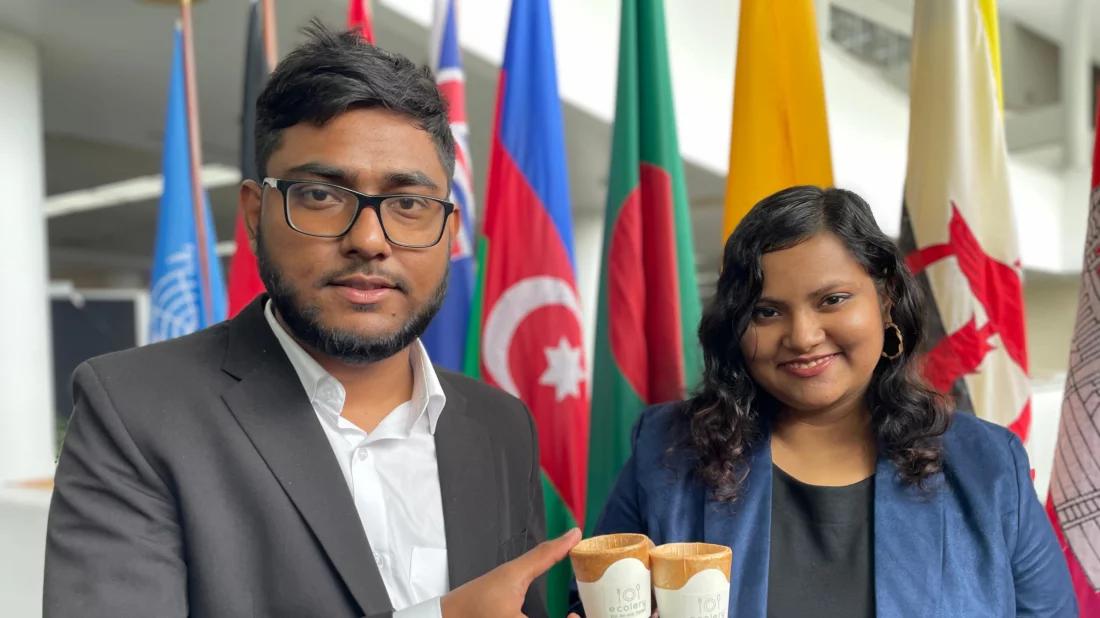The Generation Hope Goals competition — co-led by Save the Children and partners — invited teams of children and young people aged 16 to 24 to submit ideas for climate solutions in line with selected Sustainable Development Goals.
The initiative attracted more than 230 entries from across the Asia-Pacific region and were judged on four key criteria — uniqueness, feasibility, scalability, and relevance and social impact. After two stages of the competition, five finalists pitched their ideas in front of a panel of experts at the Asia-Pacific Forum on Sustainable Development in Bangkok.
With only five years left, none of the 17 Sustainable Development Goals (SDGs) are on track in Asia and the Pacific. The SDGs were agreed by all 193 United Nations Member States in 2015 to transform the world for the better and leave no one behind by 2030, but at the current rate of progress, the region will not meet these goals before 2062 — a 32-year delay.
The Generation Hope Goals competition winner, Ecolery from Bangladesh, is trying to save oceans “one bite at a time” with edible, zero waste cutlery and cups. Plastic waste makes up 80% of all marine pollution and around 8 to 10 million metric tons of plastic end up in the ocean each year.

Ecolery co-founder Nafesa Anzum Helaly celebrates the startups victory at the Generation Hope Goals Competition in Thailand. Photo: Dhaka Tribune
Nafesa Anzum Helaly from Ecolery Bangladesh said: “Zero waste has never tasted so good. Winning the Generation Hope Goals competition means we can expand beyond cups and cutlery and make sustainability accessible to everyone. We want large corporations like hotel chains, airlines and restaurants to replace single use plastic with our earth-friendly alternatives and slash plastic waste in Bangladesh and worldwide. Many people think individual actions don’t make a difference when faced with massive challenges like climate change and plastic pollution, but together our everyday choices shape tomorrow's reality.”